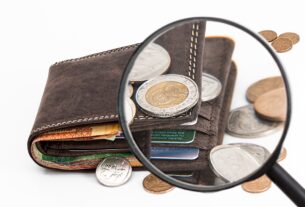🌴 Get Your FREE Bahamas Checklist!
Perfect for planning your island escape 🌊
We respect your privacy. Unsubscribe anytime.
Powered by greattravelnews.com
Traveling doesn’t have to mean draining your savings or racking up credit card debt. With the right strategy, you can explore the world on nearly any budget. In this guide, you’ll learn exactly how to budget for a trip, from estimating costs to saving money before and during your travels.
Whether you’re planning a weekend getaway or a month-long adventure, this step-by-step travel budgeting guide will help you hit the road with confidence—and cash left over.
🧭 Step 1: Define Your Destination and Trip Style
Your budget starts with your destination and how you like to travel.
Ask yourself:
-
Will I stay in hotels, hostels, or Airbnbs?
-
Do I want a luxury trip or a budget backpacking experience?
-
Am I traveling domestically or internationally?
-
Will I eat out, cook, or do a mix of both?
These preferences will shape your overall travel costs. For example, Southeast Asia may cost a fraction of what a trip to Scandinavia would.
👉 Pro tip: Use tools like Google Flights Explore or Skyscanner’s “Everywhere” search to compare destination costs.
💸 Step 2: Estimate Major Travel Expenses
Here are the core travel costs to budget for:
✈️ 1. Transportation
-
Flights or trains to/from your destination
-
In-country travel (buses, taxis, trains, rental cars)
-
Local transportation (metro, Uber, bike rentals)
Use flight comparison sites and public transport apps to get a realistic picture.
🏨 2. Accommodation
-
Hotels, hostels, guesthouses, or vacation rentals
-
Use platforms like Booking.com, Hostelworld, and Airbnb
🍽️ 3. Food & Drink
-
Meals per day (budget $10–15 for cheap eats, $30+ for mid-range dining)
-
Snacks, drinks, and occasional splurges
🎟️ 4. Activities & Tours
-
Museums, guided tours, park fees, attractions
-
Allocate more if you plan on adventure or specialty experiences
🛍️ 5. Shopping & Souvenirs
Optional, but good to include in case you plan to bring back gifts or local goods.
🧾 6. Travel Insurance, Visas & Fees
-
Travel insurance is a must for international trips
-
Visa applications and entry/exit fees (check official embassy sites)
📶 7. Internet & Phone
-
International data plans, SIM cards, or pocket WiFi
🧮 Use a spreadsheet or travel budget calculator to plug in estimated numbers for each category.
🏦 Step 3: Set Your Total Trip Budget
Now that you have estimated costs, calculate your total expected cost.
Let’s say:
-
Flights: $600
-
Accommodation (10 nights x $50): $500
-
Food (10 days x $30): $300
-
Activities & tours: $200
-
Local transport: $100
-
Insurance + visas: $100
Total trip budget = $1,800
🎯 Set a firm ceiling based on your financial situation, and always add a 10–15% buffer for surprises.
💰 Step 4: Start a Dedicated Travel Savings Plan
Once you know how much your trip will cost, it’s time to start saving:
🔄 Automate Your Savings
-
Create a separate travel savings account
-
Set up an automatic transfer each week or paycheck
🍽️ Cut Back on Non-Essentials
-
Skip a few takeout meals or subscription services
-
Reallocate that money to your travel fund
💵 Side Hustle or Sell Stuff
-
Freelance, pet-sit, or do ride-share gigs
-
Sell unused items on Facebook Marketplace or eBay
📈 Track your savings progress—it’s motivating!
🧳 Step 5: Budget While You Travel
Here’s how to stick to your budget during the trip:
📱 Use a Travel Budget App
Apps like Trail Wallet, TravelSpend, or Mint help track expenses in real time.
💳 Use No-Fee Travel Cards
Avoid ATM and foreign transaction fees with cards like Charles Schwab (debit) or Chase Sapphire (credit).
🛒 Shop Like a Local
Buy snacks and groceries from local markets instead of touristy shops.
🚶 Choose Free or Low-Cost Activities
-
Explore by foot or rent a bike
-
Visit free museums, public parks, and local festivals
📉 Set a Daily Spending Limit
Divide your total budget by the number of days. This helps you avoid overspending early in your trip.
✈️ Bonus: Budget Travel Hacks
-
Book flights 1–3 months in advance for the best deals
-
Travel in shoulder season (just before or after peak)
-
Use reward points or miles from credit cards
-
Stay in accommodations with free breakfast
-
Travel overnight to save on both transport and accommodation
✅ Final Thoughts
Budgeting for a trip doesn’t have to be overwhelming—it’s simply about planning smart, saving strategically, and spending mindfully. By following these steps, you can travel with freedom, confidence, and peace of mind.
Start now by picking your dream destination, estimating your costs, and setting up your travel savings fund. Your adventure is closer than you think!




